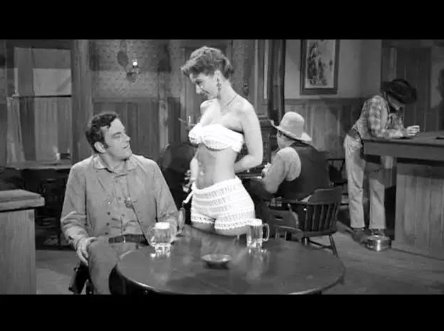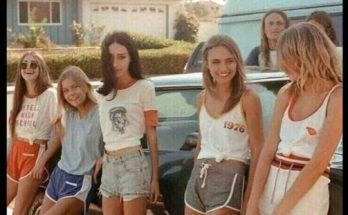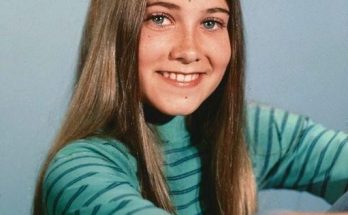unsmoke, a television classic that had captivated audiences for twenty years, came to an abrupt end after the showing of a contentious scene that generated significant criticism and led to its cancellation by CBS.
The moment in question was a sequence that provoked widespread condemnation.

James Arness’s classic depiction of Marshal Matt Dillon and Amanda Blake’s outstanding appearance as Miss Kitty Russell were two of the illustrious members of the ensemble cast of the show, which began as a radio drama before making the transition to television.
The show’s ongoing popularity can be attributed, in part, to the broad lineup of performers and the guest appearances of well-known actors, despite the fact that it first faced difficulties in casting.
The television show Gunsmoke left a lasting influence on popular culture during its entire existence.
It was responsible for the introduction of expressions such as “Get out of Dodge” and provided a representation of frontier justice that struck a chord with viewers.
In spite of this, the show’s trajectory was ultimately influenced by shifts in society attitudes towards violence, which resulted in modifications to the show’s opening scenes over the course of its run.
Both the cast members and the fans of Gunsmoke were dissatisfied with the choice to discontinue the show without providing a fitting conclusion.
On the other hand, succeeding television films made an effort to bring the show’s devoted audience, which had been watching it for years, to a satisfied conclusion.

The development of Gunsmoke was given further depth by the difficulties that were encountered behind the scenes.
These difficulties included Dennis Weaver’s portrayal of Chester’s peaceful character and James Arness’s tenacity through health troubles.
In spite of these obstacles, the show’s distinctive combination of drama, action, and characters that will be remembered forever cemented its position in the annals of television history.
The fact that Gunsmoke was cancelled serves as a timely reminder of the ever-changing nature of television and the influence that societal shifts may have on shows that are cherished by audiences.
In spite of this, its legacy lives on as a testament to the everlasting attraction of the Western genre and its capacity to captivate audiences for centuries to come.





